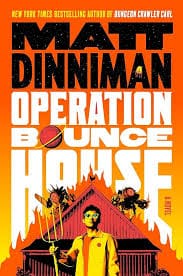
Synopsis
An exhilarating standalone novel set within the Owner universe.
He can jump between worlds. But can he save his own?
Ottanger is a rebel and mutant on an Earth governed by a ruthless Committee. But after its Inspectorate experiments on him, he discovers the ability to reach alternate worlds. The multiverse is revealed in all its glory and terror – and he can finally flee his timeline.
Then Ottanger meets the Fenris, an evolved human visiting Earth from the far future. He’d engineered the original world-walking mutation, so those altered could escape the Committee’s regime. Yet this only aided a few, while millions still suffered. And Ottanger sees that the Committee will become unstoppable if not destroyed.
However, the Fenris’s visit also attracted the Hive. With the power of its trillion linked minds, it craves world-walking biotech and will do anything to get it. As conflict looms at home, and war threatens the multiverse – the Fenris, Ottanger and his companions must prepare for battle . . .
Review
If you’re a fan of Neal Asher, you’ll be familiar with his clever sci-fi take on military fiction. But you’ll have never seen him do it quite like this before.
World Walkers is Neal Asher in his prime. It blends body horror, military space opera, and a fresh spin on the multiverse to dizzying effect. The action is inventive, the plot is dense, and the style is compulsively readable. I sped through it, and couldn’t have slowed down if I wanted to!
The plot unfolds across a number of perspectives, the most consistent of which is the Fenris. He’s an alien (well, he belongs to a species of human that’s evolved so much, he might as well be alien) pulling the strings across the multiverse, sending technology back through time to avert genocidal disaster. The other perspectives all follow the individuals affected by this strange technology, and the impact it has on their evolutionary biology. Whether you agree with the Fenris’s mission or not, you’ll empathise with him as his experiments come back with mixed results, and the more things he tries, the bigger the hole he digs for everyone. Ultimately, it’s a case of good intentions gone awry, and this keeps everything relatable on a human level, even when the plot expands far, far, far beyond humanity.
In terms of pacing, it’s exceptional. The many layers unfold at just the right time to deepen your experience of what it means to walk between worlds, not just for the purposes of the plot, but for the characters too. I loved how the affect of world walking changed each character in different ways, and the impact it had on their personalities as well as their purpose was very satisfying to see.
The first half of the book is fantastic at building intrigue and playing with the concept of a multiverse. I loved the speculative elements dotted through this first half of the story — the questions it posed and the atmosphere of the whole thing worked for me on every level. It felt experimental in the way it was told, which is kind of meta when you think that this is all one big experiment on the part of the Fenris!
The second half of the book reads a lot more like standard military sci-fi, when the presence of an enemy appears and the need to eliminate the enemy takes precedence. All of Asher’s trademark action chops are on full display, and the book feels like it’s on much surer footing in these later parts.
Underneath the events of the book, there’s subtext that speculates on whether an evolved intelligence permits one culture to interfere with another. The singular genius of the Fenris is contrasted with a hive mind, and the idea of collective intelligence versus the individual allows for all sorts of allegories. Do we have the right to impose ourselves on anyone else? What threat does a conscious mind pose to life itself? And how does societal or cultural intelligence impede the agency of an individual? All of this is expertly integrated without so much as a seam on the overall story.
In terms of the body horror elements, props to Asher for creating a creature in the Fenris that belongs alongside the Xenomorph and the Thing. The alien aspects of the Fenris give him all the sci-fi horror elements that make him feel like a classic monster. And his belief in his own superiority makes him even more chilling than his fearsome exterior. Imagine if a Xenomorph had the cold logic of a Vulcan — even if its intentions were humanitarian, it would still be truly terrifying, right? Well, that’s the Fenris. A beast for the ages. And the way that the humans are affected on a biological level by the integration of his technology is like The Fly on steroids.
I loved pretty much everything about this book. It was so easy to read, and the way the plot unfolded was brilliant — I could track each new development without feeling lost in any way, and that’s quite something when you stop and consider just how multi-faceted this story becomes. And the excellent thing about the ending is that it feels every bit as epic as it should. It somehow manages to pay off all of that build with an absolute banger of a finale. Exceptional stuff.
Overall, World Walkers is not so much a walk, but a sprint. It starts out at full speed and never lets up. It’s chilling in parts, mesmerising in others, and never less than thrilling. A standout multiverse novel that showcases all of Neal Asher’s strengths. Walk into whatever world is selling this book and pick up a copy immediately!







Leave a Reply